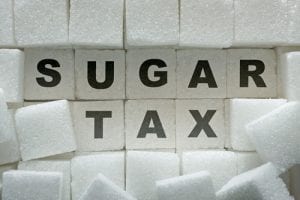Introduced in George Osbourne’s 2016 Budget, the UK sugar tax was aimed at curbing the childhood obesity epidemic. It is to be implemented in 2018 at an estimated rate of 18-24p per litre.
When talking about your chosen Hot Topic subject, always consider the positives and the negatives. Here, we’ll breakdown the sweet from the bitter so you can cover all the bases when it comes to your interview.
Sugar Tax: the Positives

Mexico
First, consider the evidence. Mexico became the first country in 2014 to implement a tax upon sugary drinks, charging on average £0.04 pence a litre, roughly equivalent to a 10% tax. The figures were initially positive, with a 12% fall in the amount of sugary drinks purchased by the end of 2014. In just one year, the amount of sugary drinks consumed on average per person per year dropped from 163 litres to 137; a large drop considering the level of integration soft drink companies have established within Mexican culture.
Revenue
By 2015, the Mexican Government reportedly raised in the ballpark of £1 billion in taxes, 30% more than was originally projected. Consider how this money could be reused to fund other programs or, as the WHO recommend, subsidise the price of fruit and vegetable to make them cheaper
Global Support
The WHO has swiftly advised that all countries introduce similar measures and following this, several countries have announced the introduction of a sugar tax, including Portugal, who plan to charge €0.16 per litre for drinks with more than 80g of sugar per litre. France and South Africa are also introducing a tax.
Sugar Tax: the negatives
Recent Figures
Recent figures suggest a rebound by the soft drinks industry in Mexico as the number of sugary drinks purchased has risen for the first time since the implementation. The figures have led to calls to elevate the tax, whilst others have called for wiser investment of the revenue earned. The WHO believes an effective tax should aim to raise the retail price of the sugary drink by 20%.
Ethics
Here comes the icing on top of the cake you’re feeding the interviewer. An awareness of ethical principles will go a long way in making your application stand out.
The medical profession is keen to shake off the image of paternalistic care and facilitate as much autonomy in treatment as possible. A key principle within these attitudes is providing the patient with the right to choice.
The same dilemma is witnessed with the implementation of this tax. For some families, the increased retail price will physically prevent them from buying the product of their desire and thus remove their autonomous right. It may be argued that rather than adopt a paternalistic attitude whereby the government tells the consumer what is best, strategies which aim to educate consumers would be more ethically correct. You can delve further into this by considering the difference between hard and soft paternalism and how that may apply here.
A niche area to consider are Type 1 Diabetic patients who may rely on purchasing drinks with a high sugar content as a safeguard against hypoglycaemic episodes. Could we as health professionals justify the patient’s financial security impinging upon their treatment and health?
What kind of questions might I be asked about the Sugar Tax at interview?
- Should the government introduce a sugar tax?
- Would a sugar tax be beneficial?
- Will the sugar tax be enough to help limit the obesity epidemic?
- What are the ethical issues in enforcing a sugar tax?
How would I approach a Sugar Tax question?
- Ensure you show the examiner you understand there are two sides to the issue
- Outline the positive arguments first, ensure you relate your points back to the specific question you are asked
- Outline the negative arguments, ensuring you leave enough time to talk about this to give a balanced viewpoint
- Don’t forget to mention the ethics. In the heat of the moment, it may not seem relevant to the question but it’s an important point to make
- Conclude your argument. What is your opinion?
Words: Vay Deshpande
